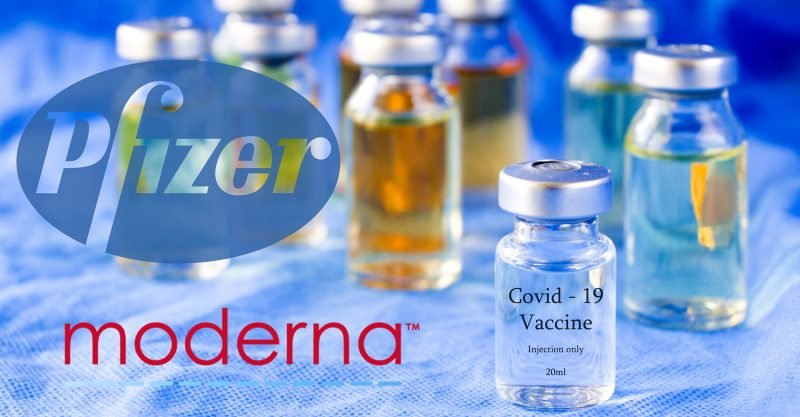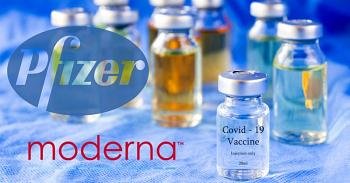NIH to Study Allergic Reactions to Pfizer, Moderna Vaccines, But Trial Design Raises Questions
More than four months into the rollout of the Pfizer-BioNTech and Moderna vaccines in the U.S., health officials launched a clinical trial to study allergic reactions to the vaccines.
The National Institute of Allergy and Infectious Diseases (NIAID) announced the trial April 7, one day after researchers in the UK published a study confirming polyethylene glycol (PEG), a compound in the two vaccines, caused the anaphylactic reaction experienced by a woman who received the Pfizer vaccine.
However, a close look at the NIAID trial guidelines reveals the study excludes individuals most likely to experience allergic reactions to the vaccines — those with PEG allergies and autoimmune disorders.
UK study focused on 52-year-old woman
On April 6, researchers from the Department of Allergy and Oncology at Cambridge University Hospitals and the National Health Service Foundation Trust in Cambridge, UK, published a research letter in Clinical and Experimental Allergy. The letter — “Polyethylene Glycol (PEG) Is a Cause of Anaphylaxis to the Pfizer/BioNTech mRNA COVID-19 Vaccine†— confirmed PEG as the culprit in the increasing number of reports of anaphylaxis following administration of the Pfizer and Moderna mRNA vaccines.
The UK researchers conducted a series of skin prick allergy tests on a 52â€yearâ€old woman who required immediate medical attention after receiving the Pfizer COVIDâ€19 vaccine. The woman developed throat constriction and a cough followed by loss of consciousness.
The woman told researchers she previously experienced allergic reactions and hives to multiple products including shampoos, conditioners and shower gels containing PEG, and immediate burning of the mouth with toothpastes and mouthwash containing PEG. Prior to her vaccination she was not known to be allergic to PEG.
Under medical supervision, the woman underwent skin prick allergy testing to test the Pfizer vaccine excipients (inert compounds, PEG and polysorbate 80) and the AstraZeneca COVIDâ€19 vaccine). All skin prick testing for allergy was negative, with the exception of PEG.
The researchers reported that 12 minutes after PEG skin testing the patient developed a systemic reaction with widespread pruritus (itching), urticaria (hives) and coughing with throat constriction. Her blood pressure dropped resulting in the need for emergency treatment with intramuscular adrenaline, intravenous chlorpheniramine and hydrocortisone. Her blood pressure then improved but coughing persisted, with a drop in oxygen saturation to 85%. This resulted in the need for a second dose of intramuscular adrenaline.
The investigators concluded for the first time that PEG allergy was responsible for a severe COVID-19 vaccine anaphylaxis. They recommended for patients with suspected or proven PEG allergy, mRNA vaccines containing PEG should be avoided, as should vaccines containing polysorbate 80 which is structurally similar to PEG and present in other COVID vaccine formulations.
The rapidly developed and currently distributed COVID-19 mRNA vaccines rely on a new nanoparticle-based carrier system that utilizes PEG. The lipid nanoparticles (LNPs) carrier system used in the Pfizer and Moderna COVID-19 vaccines to facilitate the delivery of the mRNA into the cell is pegylated — meaning coated with PEG. Coating the lipid nanoparticle with PEG keeps it from being broken down in the body after injection.
Comments
There are 0 comments on this post






